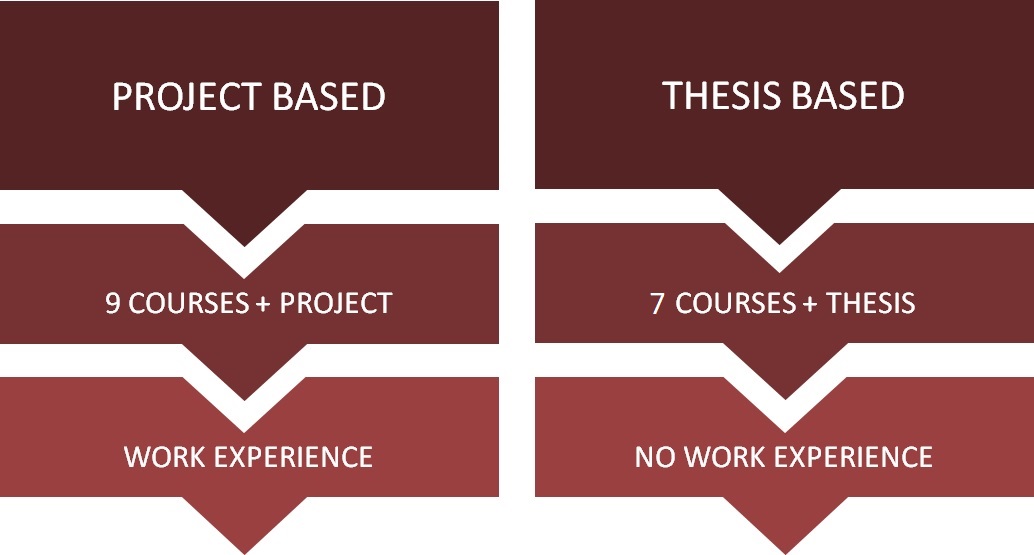
Program Description
Established in order to respond to the professional needs of educators and administrators in French immersion and minority Francophone environments, the Saint-Jean Campus leads with excellence in interdisciplinary Education research. The Faculté Saint-Jean also offers graduate students a unique experience of deepening their understanding of bilingualism and minorities.
The Master of Education Sciences program at Campus Saint-Jean offers a high-quality graduate-level university experience that extends to various domains of Education Sciences, all in French. The program is organized under the following three main research axes:
Educational leadership is the centre of the entire education profession. Be it at the school level, council level, training level, or ministerial level, principalship and school leadership roles orient and coordinate the actions of diverse actors dedicated to academic success. Generally, it is understood that a leader's role is complex in educational organizations and that it boils down to more than simply "giving orders and direction". Indeed, an educational leader is a person who assumes the role of pedagogic leader, is a competent, efficient and responsible manager, and is an engaged educator who is aware of the difficulties of leadership in a linguistic minority environment.
Educational Leadership and Administration targets students who want to assume a position of leadership in educational administration, as a leader, principal, vice-principal, counsel member, ATA, Alberta Education, etc. The goal of this concentration is to develop students' comprehension of leadership in the context of educational administration. Students will grow familiar with the theoretical foundations of leadership in education et will begin exploring the vast array of research in this field. This procedure will nurture their critical reflection on the practice of leadership in the 21st Century from an inclusive perspective. Throughout their training, students will also have the opportunity to complete a practicum in order to develop their practical skills and knowledge. At the end of the program, students will receive a graduate certificate in Educational Administration.
Inclusive education is a systematic concept and a path of individual and collective emancipation, stemming from a thought movement anchored in human rights, children's rights and social justice. Founded not only on needs, but also on rights, the program is based on altruistic values and the rejection of concepts such as "inaptitude" and "inability". It constitutes an approach of transforming education systems and other learning environments in order to meet the needs of diverse learners, diverse needs and diverse rights. Stacked with practices, methods and other appropriate tools which are clearly defined in the classes, the program focuses on how to create comfortable spaces for educators and learners, with a transformed learning experience that favours the emancipation of all.
Inclusive education is a way of thinking and acting which is centred on the transformation of learning environments, taking diversity of students and their needs into account, nourishing students' active participation in learning, supporting their educational success, reducing their environmental obstacles and developing a collaborative environment. In this perspective, inclusive education targets many dimensions that constitute learning environments: inclusive practices, support tools for inclusivity, innovative technologies for inclusion in education, values and attitudes that support inclusion in education, common difficulties with managing diversity from an equitable and inclusive perspective, etc.
and numeracy are at the heart of learning and play a determining role in academic success. Literacy and numeracy development in curricula is a complex process that requires skills and knowledge about oral and written production in many disciplines in schools. Numeracy development consists of the ability to use and apply quantitative information and mathematic knowledge to a variety of everyday situations. The main objective of this concentration is to deepen students' understanding in these two domains in order to renew their pedagogic approach and optimize their ability to plan for meeting the needs of learners. This concentration targets many areas of research and studies such as: the integration of French in school materials, plurilingualism and pluriculturalism in teaching and learning, the role of STEM subjects in teaching and curricula, learning evaluation and oral, written, numeric, etc. literacy.

Students applying to for the MEDU program must satisfy the following requirements:
- A bachelor degree or its equivalent from a recognized institution with a cumulative GPA of 3.0 out of a 4.0 scale, or the equivalent, in the last ★60 university credits or the equivalent from the last two years of full-time study.
- Letters of reference: 1 academic and 1 professional
- A letter of intent indicating the orientation and the research area to be pursued during the graduate studies- must be submitted in French
- Demonstrated two-year work experience, minimum, for the Professional Stream
- Demonstrated French language ability
Students applying to for the MEDU program must satisfy the following requirements:
- A bachelor degree or its equivalent from a recognized institution with a cumulative GPA of 3.0 out of a 4.0 scale, or the equivalent, in the last ★60 university credits or the equivalent from the last two years of full-time study.
- Letters of reference: preferably, 1 academic and 1 professional
- A letter of intent indicating the orientation and the research area to be pursued during the graduate studies- must be submitted in French
- Demonstrated French language ability
Students in an MEd program must take four required courses (*12). The elective courses (*15 for project-based, *9 for thesis-based) are chosen with consultation from the supervisor and the graduate program administration at the Faculté Saint-Jean. The supervisor can advise students on which courses to take.
Requirements of the thesis-based program: Seven courses (*21), as well as the preparation and successful defence of a thesis (*9). The student must also complete an ethics training course and eight hours of professional development in the first twelve months of study.
Requirements of the projet-based program: Nine courses (*27) and a synthesis activity (*3).
Time limit for the thesis-based program: four years
Time limit for the project-based program: six years